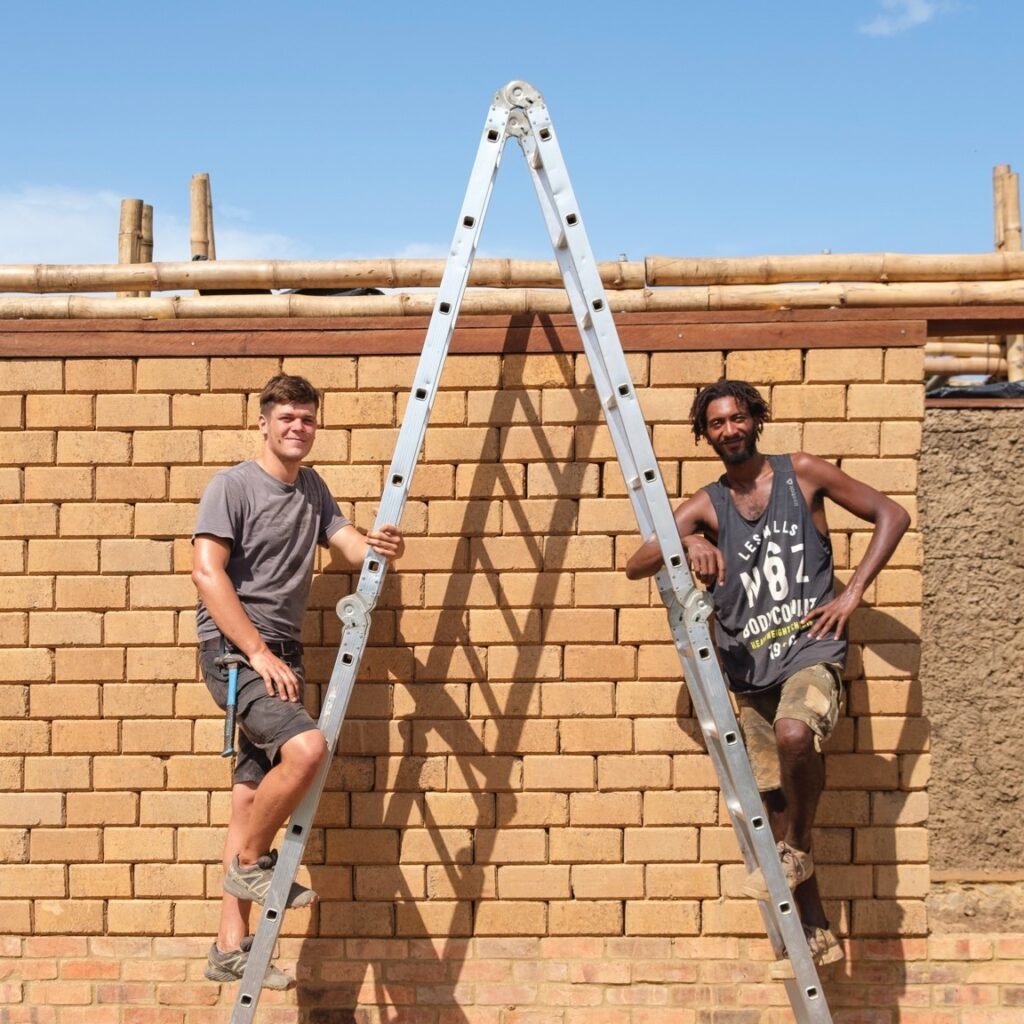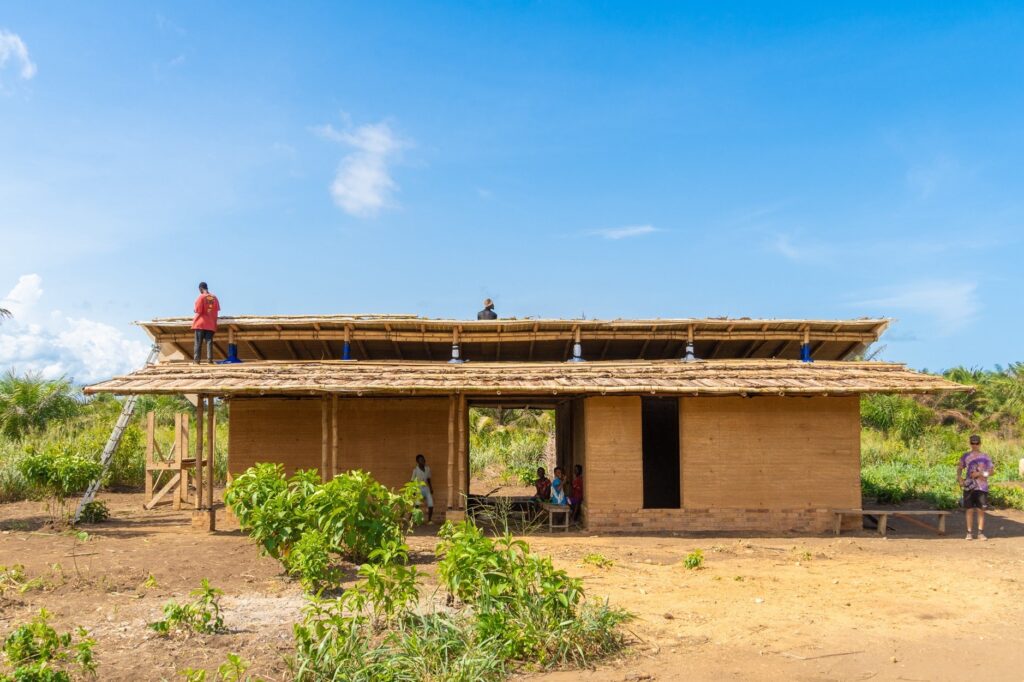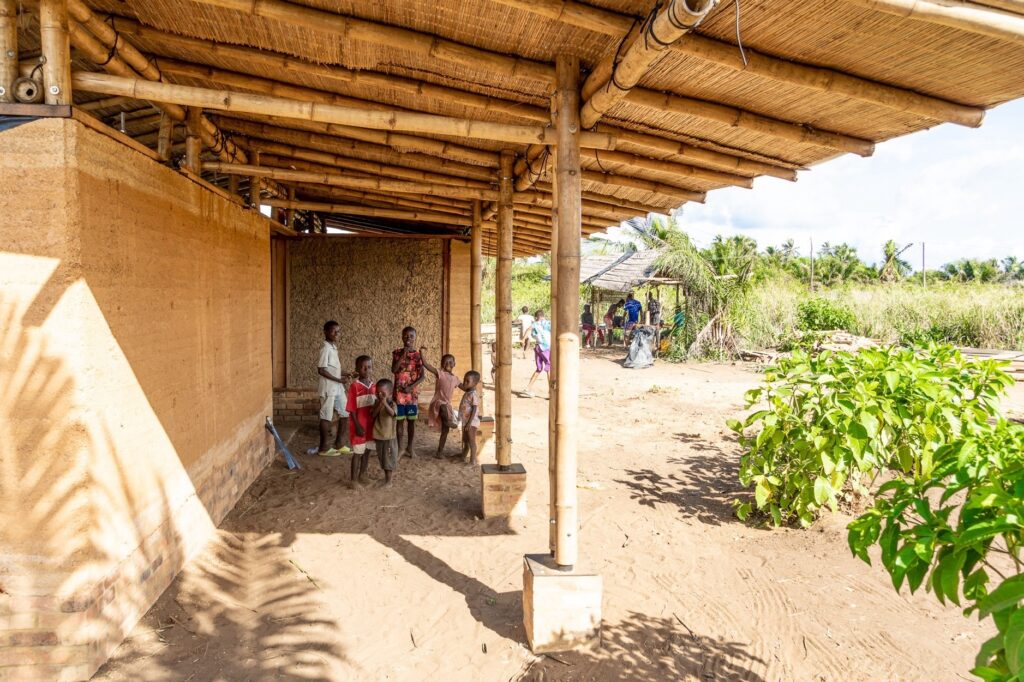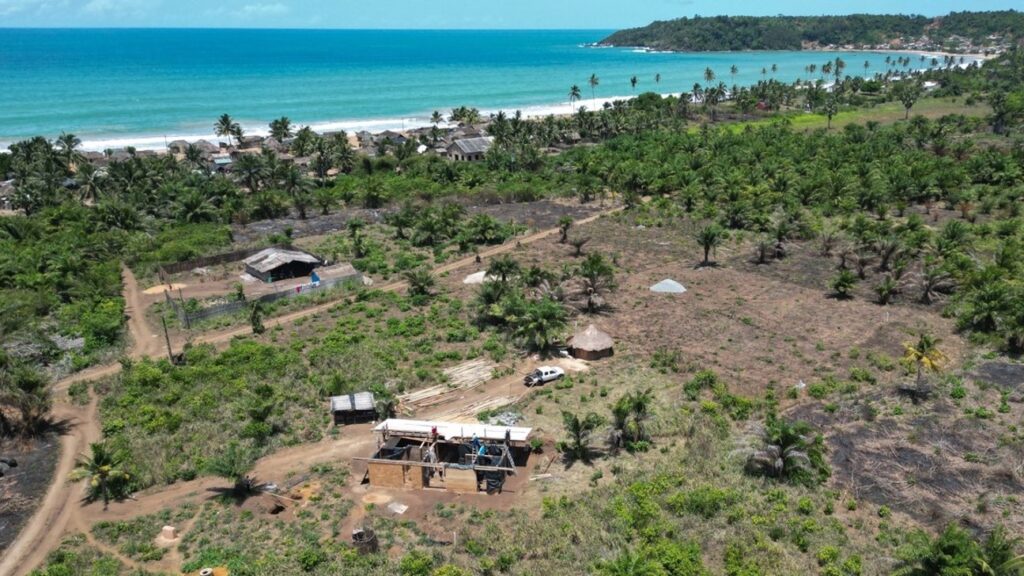Every now and then, visionaries emerge in the world of architecture who not only construct buildings, but also bring entire movements to life.
Marvin and Paul, the founders of ISOPTERRA, are just that, visionaries who are challenging the industry with their mission to establish earth building as a sustainable building practice.
Both young entrepreneurs studied at the TH Lübeck, one in civil engineering and the other in architecture.
Their journey together began in 2019 at the Solar Decathlon Africa student architecture competition in Morocco, where they discovered their passion for earth building as part of the AFRIKATATERRE team led by Prof. Heiner Lippe.
“The idea came about when we first came into contact with earth building at the Solar Decathlon in Morocco in 2019, initiated by Heiner Lippe.
We designed a building there that could also be used in other African countries.
That’s when I had the idea that we should also use it in Ghana.
Paul and I got to know each other there and exchanged a lot of ideas.
So we set about implementing it in Ghana straight after graduating,” recalls Marvin as he reflects on the beginnings of their project.
The burgeoning vision combines traditional building techniques with modern innovation and shows how sustainable development is not only feasible, but also urgently needed.
The founders do not rely on traditional development aid, but act as intermediaries between different trades.
Their work in Ghana therefore not only includes construction, but also the integration and preservation of traditional craft techniques.
The use of local resources plays a particularly important role in continuing the traditional African building culture in the form of modern and sustainable architecture.
This idea quickly became reality and the company ISOPTERRA was founded by Marvin and Paul in Hamburg in November 2022.
The name of the start-up is derived from the Latin word Isoptera (termite).
The word components Iso (equal) and ptera (winged) together with terra (earth) form the word structure ISOPTERRA.
The name stands for a construction method that is in harmony with nature.
The project was initially funded by various sources, including start-up programs such as the AiDiA- Afrodeutscher Startup Pitch, which Marvin won for ISOPTERRA in September 2022.
A successful crowdfunding campaign, private donations and support from the Fördergesellschaft der Technischen Hochschule Lübeck and the Karin Witte Foundation also contributed.
Paul and Marvin have taken part in various mentoring programs, such as those offered by the Hamburg Kreativ Gesellschaft.
They also received active support at the HIC Lübeck, including targeted advice from the GründerCube as part of the Gründungskontor, a 10-week program from StartUP SH, in which a tailor-made start-up concept was developed in cooperation with experts.
Interdisciplinary collaboration is a key element of ISOPTERRA.
“There are no fixed roles in our team,” explains Paul. “Everyone takes on tasks according to need and availability.” “Except for the structural engineering, which I do,” agrees Marvin, “but we still discuss it together. We don’t have the classic stereotypes.”
Another important aspect is the involvement of the team and the local community in decision-making processes as part of project implementation.
Thanks to a non-hierarchical organization and the appreciation of the employees, everyone contributes to the success of the project.
This not only creates a positive working atmosphere, but also contributes to improving the standard of living of the local community.
“It’s also about social participation. We try to ensure that there are no hierarchies between newly arrived Europeans and the locals. We communicate on an equal footing and try not to be patronizing. Everyone should feel valued for what they can do,” explains Paul.
“In a broader sense, i.e. in relation to our current project and the larger plan to make earth building more attractive, the challenge also lies in getting people to accept the concept.
Convincing people is a major challenge that we have to overcome.
In terms of the overall picture,” Marvin points out.
The first house has now been built, the look is modern and the walls provide cooling shade.
“People need to see, touch and experience it to gain confidence that our project will work.
The house feels pleasantly cool, and we have many guests who are influenced by it and are inspired for their own building projects,” Paul continues.
ISOPTERRA’s external image has been strengthened by media appearances, in particular by the Schleswig-Holstein Magazin of NDR.
However, Instagram also plays a central role in communicating with a broad audience.
“Our network extends across the African network in Germany, where we share experiences and learn from other projects,” explains Marvin.
The pair also receive a lot of encouragement via Instagram from architecture students who would like to learn more about sustainable construction methods. “We often receive inquiries from students who say that not enough emphasis is placed on sustainability in their architecture studies and that they would like to join us,” explains Paul. “It’s a shame that in Germany and here in Ghana, sustainability is not comprehensively included in the curriculum. Through our work, we hope to show that there is great interest in the topic.” An initial success in this respect is that the two have been invited to give a guest lecture on earth building to students at the University of Kumasi.
In March 2024, the two offered workshops lasting several days over three weekends for the first time, where participants were able to learn the basics of earth building on the construction site in Butre.
The workshops were not only offered to interested students and locals.
“In the long term, there will also be participants who may work for other organizations and want to learn the content and possibly finish the house they are building in earthen construction,” reveals Paul.
ISOPTERRA’s vision for the future goes beyond clay construction in Ghana.
The founders want to influence the construction industry both in Ghana and in Germany.
They see themselves as pioneers of sustainable construction and want to inspire young people to actively promote sustainable building methods.
“We want more buildings to be built with clay, for small companies to be set up that produce clay building blocks and for clay to become more popular as a building material.
We want to be an example of sustainable building, not only here but also for other countries.
Our aim is to show that sustainable construction is possible on a large scale.”
The pair also have a little tip for future social innovators.
“In my opinion, you should just start without being too obsessed with perfection. We often strive for perfection, but especially when you start alone or as a couple, not everything can be perfect. It’s important to be content and realize that sometimes it’s better to have more output than to do everything perfectly,” advises Paul.
Marvin adds: “I would emphasize that it is very useful for people in the social sector to look at examples of projects that have already been implemented.
This saves a lot of time as you gain insights into the start-up phase and other important aspects.
It is also beneficial to network with others in order to move forward.”
Finally, we wish Marvin and Paul continued success with their pioneering project and hope that their commitment to sustainable earth building will lead to a rethink in the construction industry.
Not just in Ghana, but worldwide.






